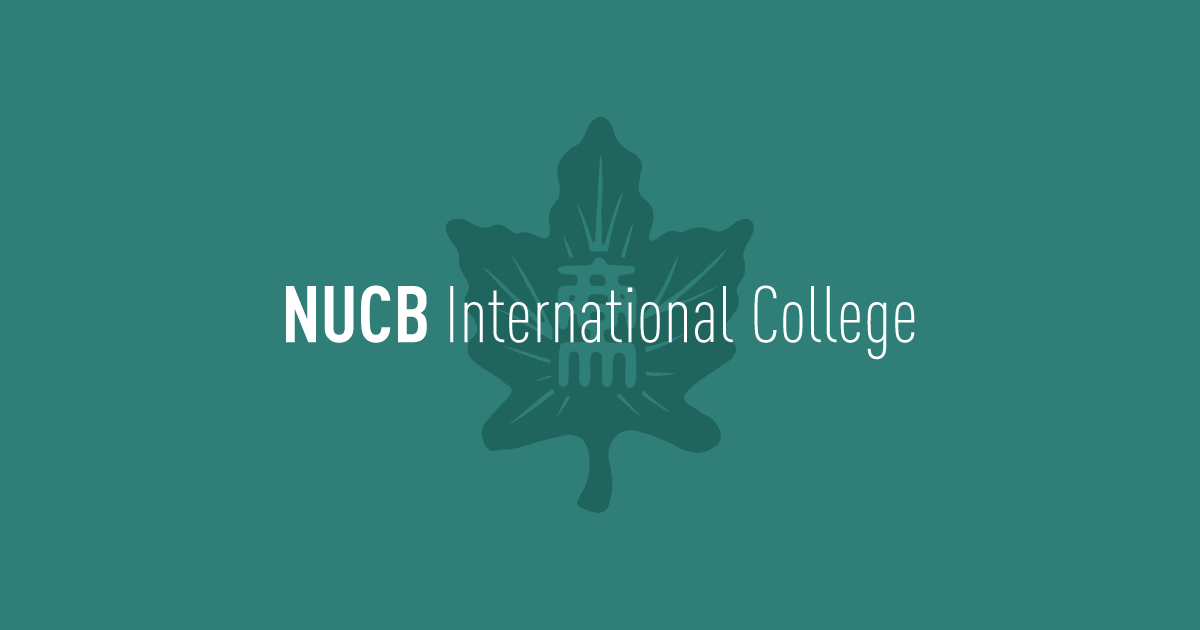Renowned Composer Sato Provides Music for NUCB International College
Acclaimed Japanese composer and director Mitsuaki Sato, who has made a significant impact both in...
Press Release
NUCB International College (NIC) is a boarding high school in Nisshin City, Aichi Prefecture, Japan that offers students multiple opportunities to grow and develop beyond the academic rigours of the classroom. One unique aspect of the academic school day includes an offer-school extracurricular activity called the Engage Programme; which is similar to “club activities” in many other high schools. The uniqueness of the Engage Programme, however, is that the content of the activity changes four times a year, and students elect both an ‘active’ and ‘sedentary’ activity to experience each quarter. By participating in various Engage programs, NIC students can take part in a variety of “experiences”, which not only help stimulate their thinking about future career paths and interests but also provide them with the opportunity to explore new hobbies and interests they otherwise would not have.
One of the students who participated in the latest November to January quarter Engage Programme selections of Photography is an aspiring physical therapist. “Through Photography, I realized that even a single object can give a very different impression depending on the way it is photographed and the angle from which it is viewed.” She further explained that “it was very meaningful to learn the importance of having diverse perspectives when evaluating patients’ medical conditions in the future.” The Photography Engage Programme was spearheaded by the art faculty, which decided a general framework that built up to a contest at the end of the term for best student photography. However, each student was solely responsible for his or her own ideas on how to take their photos, including how to express the subject’s emotions, and utilise the space around it, as well as the angle, perspective and framing of the subject.
In the Volleyball Engage Programme, one of the active selections of the same quarter, activities were also student-led and driven. The students are responsible for setting up the nets and posts, as well as dividing the teams, whilst teachers were simply present for safety.
One student, who remains unsure about his future career path and aspirations, said, “I learned that the way to raise morale and unity differs depending on the members of the team that day. Each time, I had to consider the individuality of each team member and how to communicate with the other members. In the future, I am interested in a job that utilizes such communication skills, such as starting my own business.”
The Engage Programme at NIC has thus far offered students the opportunity to experience photography, volleyball, weight training, yoga, ultimate frisbee, music, public speaking, kyudo (Japanese archery), and more. A student from China, who chose Kyudo this quarter, said that she “realized once again how politeness is at the core of Japanese culture and tradition,” and that she has “become more and more interested in Japan”. She spoke about her interest in continuing further education at a Japanese university after graduating from NIC in the future.
NIC provides our students not only with these opportunities to experience a wide range of activities but also opportunities to think about their future ahead. Along with the Engage Programme, students have the chance to consider future career paths through various other events such as the cultural exchanges held within the boarding dormitories that celebrate the international diversity of our students, as well as the case method classes that foster independent decision-making skills by allowing them to consider themselves as the protagonists of various situations and scenarios that they may encounter as a citizen of the world.




NUCB International College is designed to provide a world-class education with excellent facilities and a rich natural environment, on its 200-acre campus, in Nisshin city, Japan.
The case method, first developed at Harvard Business School in 1922 and now commonly used in elite academic institutions worldwide, is incorporated into the teaching approaches for leadership education at NIC. Small classes enable personalised supervision by multinational faculty members with master's or doctoral degrees and faculty from affiliated top business schools. In addition, the Summer School for prospective students (July) and a preparatory course (the Bridging Programme) for September admission are also offered.
The school provides a safe and secure co-educational boarding environment with reference to international boarding standards. 'House Supervisors', who are well versed in psychological and health management, provide daily support and regular individual counselling to ensure optimal support and guidance for each student. Through living together with peers from different cultures and experiences, students develop the qualities required of the next generation of leaders.
Event | NUCB International College - IB Boarding High School
International College
https://ic.nucba.ac.jp/event